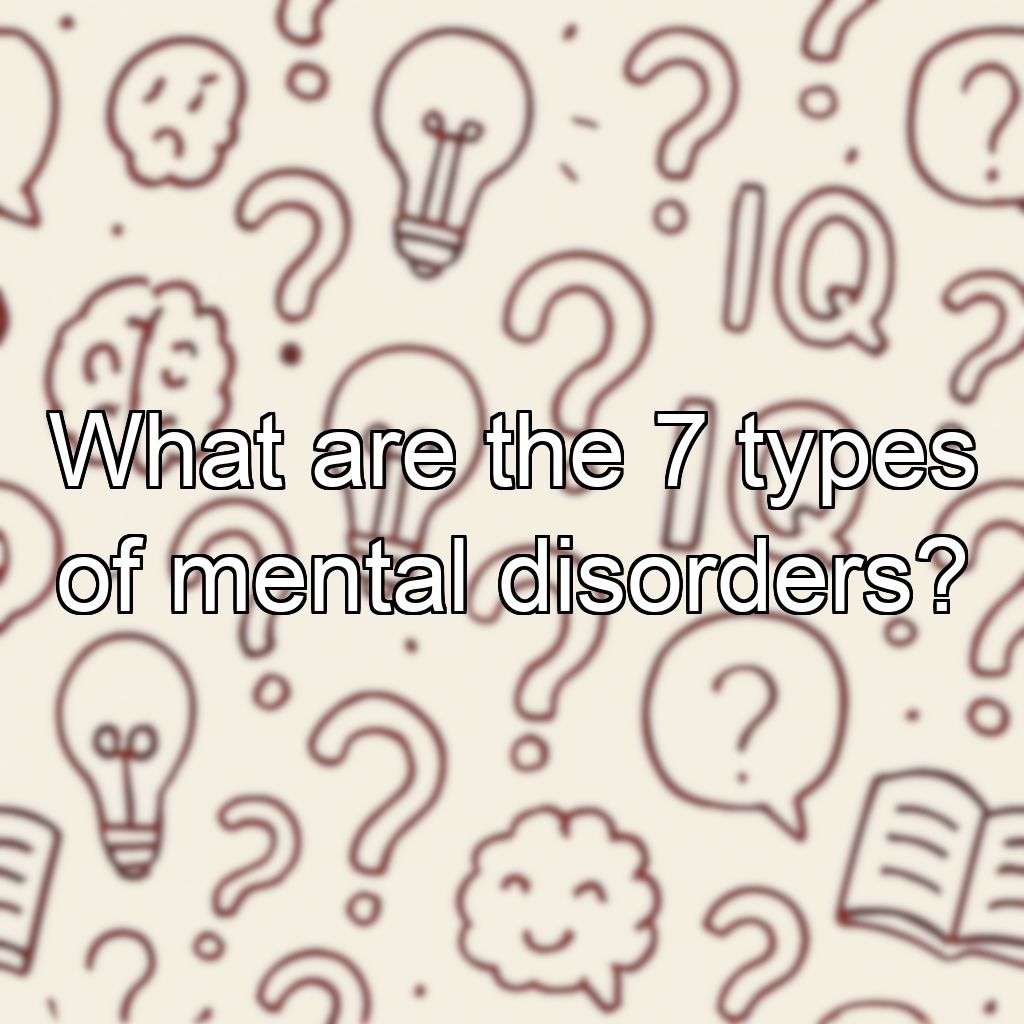What are the 7 types of mental disorders?

Understanding the 7 Types of Mental Disorders
Mental disorders, also known as mental health conditions or psychiatric disorders, can be classified into various categories based on their symptoms and characteristics. While there are numerous specific diagnoses, they are broadly grouped into several main types. The seven common types of mental disorders include:
1. Anxiety Disorders
These involve excessive fear or anxiety and include conditions such as Generalized Anxiety Disorder, Panic Disorder, Phobias, and Social Anxiety Disorder.
2. Mood Disorders
Characterized by disturbances in mood, these include Major Depressive Disorder, Bipolar Disorder, and Cyclothymic Disorder.
3. Psychotic Disorders
Marked by distorted thinking and perceptions, with Schizophrenia being the most prominent example.
4. Personality Disorders
Involving enduring patterns of behavior and inner experience that differ significantly from cultural expectations, examples include Borderline Personality Disorder and Antisocial Personality Disorder.
5. Eating Disorders
These involve preoccupations with food, body weight, and shape, such as Anorexia Nervosa, Bulimia Nervosa, and Binge-Eating Disorder.
6. Neurodevelopmental Disorders
Typically evident in early childhood, including Autism Spectrum Disorder, Attention-Deficit/Hyperactivity Disorder (ADHD), and Learning Disorders.
7. Trauma- and Stressor-Related Disorders
Conditions arising from exposure to traumatic or stressful events, such as Post-Traumatic Stress Disorder (PTSD) and Acute Stress Disorder.
These categories help mental health professionals diagnose and treat individuals effectively, although some disorders may overlap across categories.